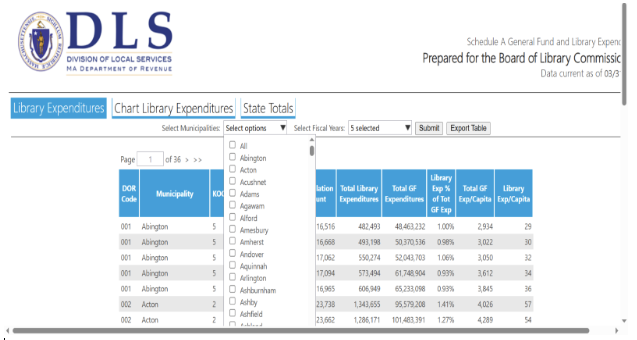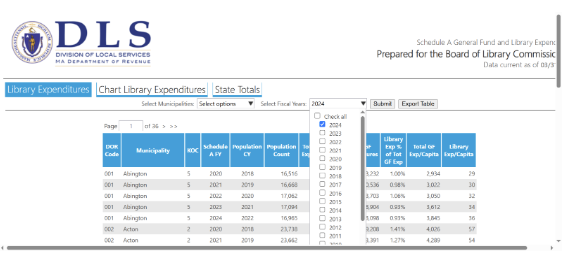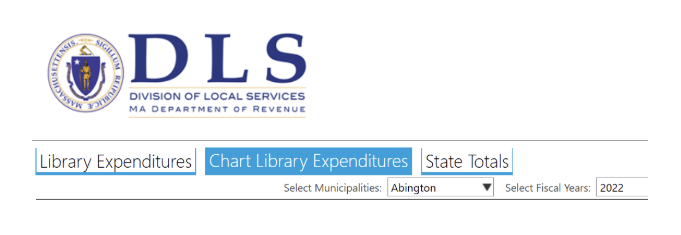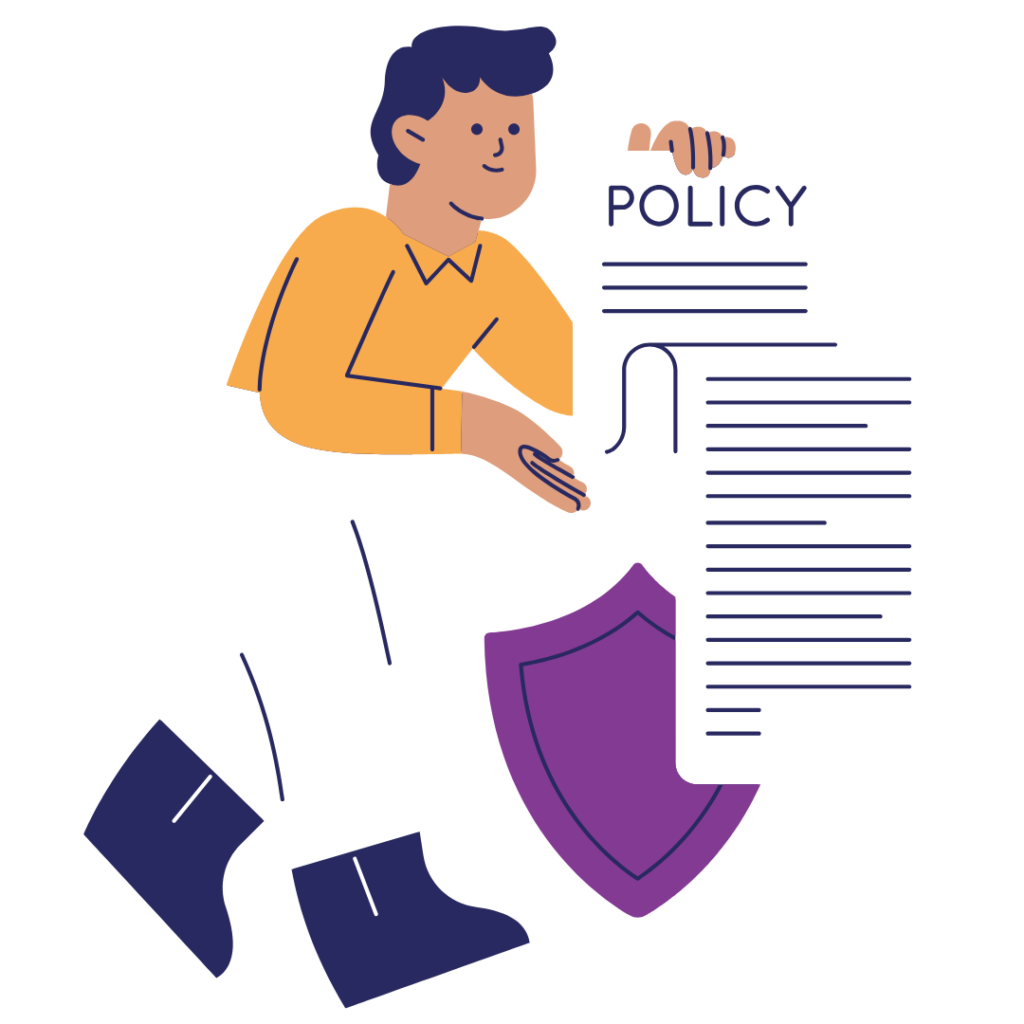We interrupt your regularly scheduled, policy-centered fortification with a practical guide on determining just how much value your library contributes to your community. Welcome to ROI 101: Your library’s return on community investment. In this Fortifying Friday post, I’ll be showing you some tools that can help you calculate the value of your services to your community and the return on investment those services bring for every tax dollar that’s invested in your library. I’ll also give you some suggestions on how to frame those numbers in a way that can be meaningful to those who are making decisions about library funding.
Return on Investment
A return on investment (ROI) is generally a metric that’s used in the business world to calculate how much profit was gained from an investment. As a government service, public libraries obviously don’t turn a profit, nor are they meant to. But that doesn’t mean that libraries don’t add immense value to their communities. While some of that value will always be incalculable (who can quantify the positive feelings or nostalgia someone feels in a library?), there are some very concrete ways to quantify what a library offers its users and non-users alike. Enter the ROI.
Most public libraries in Massachusetts are funded by a combination of municipal, state and some federal tax dollars. Though some are also privately funded as independent 501(c)3 organizations, they still receive enough municipal appropriations to obtain state certification and state aid. For our purposes, we will be looking at the return on investment for the municipal tax dollars, i.e. what the city or town spends on its public library, as these are generally the largest part of a library’s budget and are the funds most likely to be applied to the most common library services. The library’s municipal officials (town management, select board, city council, etc.) are also likely to be familiar with an ROI figure as an understandable and relatable metric.
There’s a Calculator for That
How does a library start calculating its ROI? Fortunately, the Maine State Library* still posts a ROI calculator that was developed by MLA and the Chelmford Library’s Brain Herzog. So what’s left for you to do is obtain the correct statistics to plug into that tool. Those statistics they’re asking for? You already have them. Your ARIS statistics that you submit to the MBLC every August have the numbers you need. Click “calculate” and you’ll have a number.
Don’t get too excited (yet). The number you get from the calculator isn’t your ROI. That number is the dollar amount of what your services would cost the average person if they were paying for them out of pocket. The next number you need is your municipal appropriation, which you can also easily get. While you may have this number in your budget files and in your financial reporting that you submit to the MBLC in October, you can also get it in relation to the budget of the other departments in your municipality.
Have a Slice of Municipal Pie
As a self-admitted data nerd, this is quite possibly one of the most underrated library tools out there (the CensusData tool runs a close second). Allow me to introduce you to the municipal pie. This link will take you to the MA Department of Revenue’s site that lists and charts every MA municipality’s budget info and breaks it down by department. Here is where you see your total municipal budget appropriation and where your budget falls in relation to other departments in your city or town. Here’s how you get there:
- Find your municipality from the drop-down.

ALT TEXT
Screenshot of detail of website with Division of Local Services: MA Department of Revenue logo indicating the content of “Schedule A General Fund and Library Expense Prepared for the Board of Library Commissioners” with a drop-down menu asking to “Select Municipalities” and listing the name of MA municipalities with a selectable check box next to each option
- Choose the fiscal year you want to see. (For ROI purposes, it’s best to use the most recent, but you can also compare to previous years for other interesting information.)

ALT TEXT
Screenshot of detail of website with Division of Local Services: MA Department of Revenue logo indicating the content of “Schedule A General Fund and Library Expense Prepared for the Board of Library Commissioners” with a drop-down menu asking to “Select Fiscal Years” and listing years from 2024 back to 2003 with a selectable check box next to each option
- Click on “Chart Library Expenditures” to see the pie chart breaking the tax dollar budget appropriations for your municipality. For demonstration purposes, this pie chart is for ALL the municipalities in MA. That tiny pie slice is the percent of the budget that all libraries have in the overall budget of Massachusetts. In other words, on average, libraries across the state are 1.1% of the Commonwealth’s budget. How does your municipality compare?**

ALT TEXT
Screenshot of detail of website with Division of Local Services: MA Department of Revenue logo. The selectable option “Chart Library Expenditures” is highlighted.
What’s Your Number?
OK – you have your calculated value and your municipal appropriation. To calculate your return on investment, divide the value determined in the library calculator by your total municipal budget, (calculated value / municipal budget = ROI). This number will very likely be greater than 1. When you multiply this number by 100, you’ll get your ROI percentage. This is a valuable metric that will be understood by a good portion of your community regardless of their connection with the library.
Spread the news!
Your library’s percentage is very likely over 100% and is probably somewhere between 100-1000%. The most important thing you can do now is to put that in context for your community. Here’s an example:
- You’ve calculated that your ROI is 430%
- What this means: The value of your library’s services is 4.3 times what your municipality invests in your library
- Or: For every $1 tax dollar that your municipality invests in your library they get $4.30 back in services that do not cost your community any additional money
- To put it another way: You’re offered a savings account where, for every dollar you put into that account you get $4.30 back in interest. (I don’t know a single person who wouldn’t take that deal.) That is essentially what your library is offering where, in this case the interest = services.
One more point you want to stress: those services that are worth 430% MORE than the tax dollars that have been invested to your library do not cost your community any additional money. The people using your services are doing so at no additional cost to them beyond the taxes they have already paid into their community. No one is asking them to pay a fee to take advantage of a staff member’s expertise on safely and critically navigating the internet. No one is charging admission for the early literacy benefits of a story time at the library. Libraries are not charging per hour for after school programs that tutor kids and give them skills to succeed. Most of us know (as I’ve previously mentioned) that if you are considered a municipal employee (and most library workers are; even association libraries usually get their staff salaries from their municipal budget), then you have a responsibility to be good stewards of tax dollars. Your ROI is concrete data offering proof that you are stretching those tax dollars as far as they can go.
Once you have your number and its context, get this information out into your community! Do NOT wait to get this information out there. Your ROI is not an “ace in the hole” number to pull out only during budget negotiations (though it can be helpful to remind your municipality of your ROI during those negotiations). This is a number that everyone who enters the library, uses library services, or has a say in library services should be able to see. Put it on flyers; post it around the library; add it somewhere on your website; send everyone picking up a hold home with a bookmark that tells them just how much their tax dollars are offering them. Update this information every year as your new budget comes through. Most importantly, arm your advocates with this information. The more people in your community who know the value of the services you are offering to your community, the better. I’ve talked before about showing the community you’re a good steward of tax dollars. This is a great way to demonstrate what good stewards you are because you are backing that info with data. You are telling your community: we know how to stretch a dollar and get the most out of the money we’re given. You give us $1 and we will use that dollar to give our community services that are worth multiple times your investment.
*There are other library calculators out there, but the ALA links to the Main State Library one while their tool is, unfortunately, not currently available.
** A note for Association libraries: your “slice” of pie will likely be considerably below the average since your primary sources of income are structured differently than municipal libraries. That doesn’t mean you can’t still get some great data, though!












